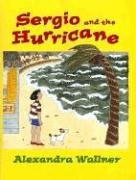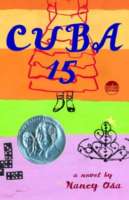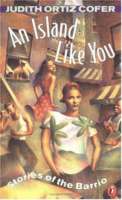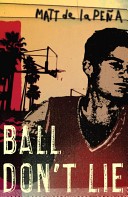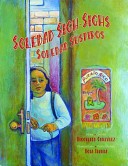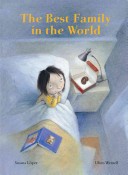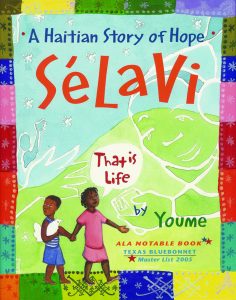 The story of Selavi celebrates the triumphs of children who face some of life’s most difficult challenges. In these pages, you’ll meet Selavi, a homeless child who is befriended by other children living on the streets in Haiti. They look out for one another, sharing food and companionship. Together they find the voice to express the needs of Timoun Lari, the children who live in the streets. With a caring community they are able to build a shelter, and from there to create Radyo Timoun, Children’s Radio, a station run by and for children, which is still in operation today. At Radyo Timoun, the questions and suggestions of children are broadcast for all to hear. The story takes place in Port-Au-Prince, Haiti, a country which has a long history of resistance and struggle. Haiti is the birthplace of Toussaint L’ouverture and many others whose dedication to justice led to Haitian independence from slaveowners. Haiti is perhaps best known as the island which orchestrated the first successful revolt by enslaved peoples in the western hemisphere in 1804. Haitian author Edwidge Danticat adds an essay at the end of the story of Selavi.
The story of Selavi celebrates the triumphs of children who face some of life’s most difficult challenges. In these pages, you’ll meet Selavi, a homeless child who is befriended by other children living on the streets in Haiti. They look out for one another, sharing food and companionship. Together they find the voice to express the needs of Timoun Lari, the children who live in the streets. With a caring community they are able to build a shelter, and from there to create Radyo Timoun, Children’s Radio, a station run by and for children, which is still in operation today. At Radyo Timoun, the questions and suggestions of children are broadcast for all to hear. The story takes place in Port-Au-Prince, Haiti, a country which has a long history of resistance and struggle. Haiti is the birthplace of Toussaint L’ouverture and many others whose dedication to justice led to Haitian independence from slaveowners. Haiti is perhaps best known as the island which orchestrated the first successful revolt by enslaved peoples in the western hemisphere in 1804. Haitian author Edwidge Danticat adds an essay at the end of the story of Selavi.
This book has been included in WOW’s Kids Taking Action Booklist. For our current list, visit our Boolist page under Resources in the green navigation bar.
Featured in Volume I, Issue 2 of WOW Review.
